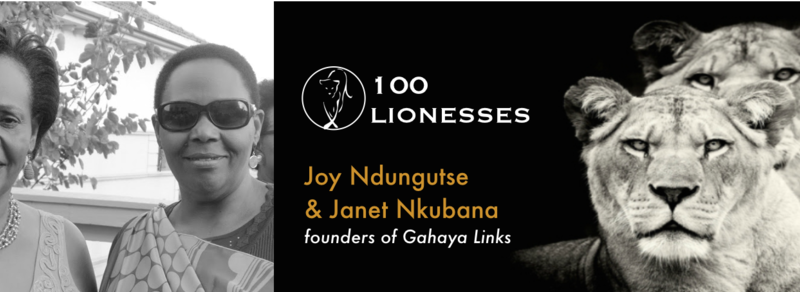Rwandan social entrepreneurs and sisters, Janet Nkubana and Joy Ndungutse, are testimony to triumph over incredible adversity. They are an example of how women in that country are spearheading a new economic revival following the 1994 genocide which took the lives of 1 million people.
n November 1994, Janet Nkubana returned home to Rwanda having been in exile as a refugee in Uganda. She was running a hotel in Rwanda’s capital Kigali and kept noticing all the women hawking baskets in front of her hotel. Her first instinct was to convince them to move their business elsewhere as she felt they were pestering her clients for sales. Yet, she noticed that her hotel guests were among the few people with money to spend and the main source of sales revenue for these women. She approached the women and told them she would set up a shop in the hotel itself to sell the baskets directly to hotel guests, and added that she would also take their baskets to sell at flea markets when visiting her sister, Joy, who lived in the United States.
“As we sat together weaving, people started forgiving each other. You can’t live with this anger and be a human being.”
Janet and Joy came from a long family tradition of weaving. Their mother was a master weaver and used to do all the beadwork and basket weaving in the refugee camp in Uganda. Basket weaving is an old tradition among women in Rwanda, in fact today the basket is on the Rwandan national seal and currency and is known as the peace basket. These uniquely Rwandan pagoda-shaped baskets are hand-crafted from enzyme-washed papyrus and banana leaves, each featuring zig-zag designs which tell ancient stories. The basket weaving groups include both Hutu and Tutsi women, for whom working together helps heal old grievances. Hence the name: peace baskets. Says Janet: “I have survivors, I have widows, I have women whose husbands are in prison. To see them sitting under one roof weaving and doing business together is a huge achievement…these women are now together, earning an income. It is amazing.”
The sisters started their new basket weaving and sales enterprise, Gahaya Links, initially with 27 women weavers and financing the business using a mixture of personal savings and funds from winning a World Bank business plan contest to buy raw materials for their craftswomen. The business was formally registered in 2004 and proceeds from a property sale helped them open a showroom in Kigali. After a meeting at the U.S. Embassy in Kigali, Janet was linked with USAID, which sponsored her participation in a New York trade show in 2005. It was there that Janet made the link with the iconic Macy’s department store buyers and Willa Shalit of Fair Winds Trading, Inc., a marketing and trade company importing African crafts, who had previously visited the sisters in Rwanda. This event brought about a transformation of Gayaya Links as a business, and establishing Fair Winds Trading as a partner. It also marked the birth of their joint venture, Rwanda Path to Peace. Today, Willa is now the exclusive importer of baskets to the United States, allowing the sisters to focus more on production. The first order for Rwandan peace baskets from Macy’s attracted substantial media attention, and Rwanda’s President, Paul Kagame, inaugurated the event at Macy’s flagship store in New York. Following the opening, Macy’s set up a window display in its New York store in 2005, and a feature on the website.
“Something small can create an impact …. You don’t have to have a lot of money to start a business. You can start small, but you must have a passion for what you’re doing.”
Source: http://www.lionessesofafrica.com/blog/2014/12/2/startup-story-janet-nkubana-and-joy-ndungutse




No comments yet, be the first to leave one!
You must be logged in to post a comment.